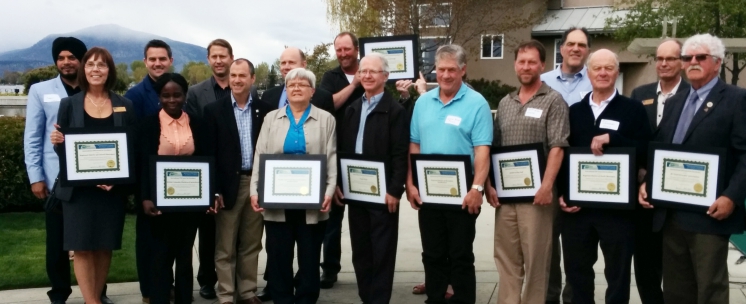The SIR Board of Directors is the chief governing body for the SIR program. All key decisions related to the program are made by the board.
The board has eight voting and two non-voting members. The voting members are regional district directors (or alternates) appointed by the participating regional districts, and three grower representatives (one of whom is a certified organic grower).
Current voting members are:
| Mohini Singh | Central Okanagan |
| George Bush | Okanagan Similkameen |
| Shirley Fowler | North Okanagan |
| Tim Lavery | Columbia Shuswap |
| Gord Lovegrove | Central Okanagan |
| Walter Makepeace | Grower Rep - Zone 1 – Organic |
| Tarsem Singh Goraya | Grower Rep - Zone 2 |
| Joginder Dhand | Grower Rep - Zone 3 |
The board’s non-voting members are:
| Taras Pojasok | Agriculture and Agri-Food Canada |
| Susanna Acheampong | BC Ministry of Agriculture and Lands, Food Safety and Quality Unit |
All board members participate in the full range of discussions that occur at the board table. Only the eight voting members, however, are entitled to cast votes. Each of these members receives one vote on every issue. A simple majority of the eight voting members decides all matters other than for financial matters. In addition to the majority of the overall board, decisions of the board which are financial require at least three of the five Regional District voting members to be in the affirmative. Financial matters, for this purpose, include approval of the financial plan, authorizations to enter contracts, acquisition and disposal of real property, and authorization of borrowing and liabilities.
Under section 283 of the 1989 MEVA, the SIR board is identified as a corporation. With this status, the board has authority to set its own budgets and determine its own operating procedures; the board does not need the approval of the program’s participating regional districts in these matters. The board also has the authority to issue and enforce clean-up orders against property owners. Such orders often require the removal of host trees.

